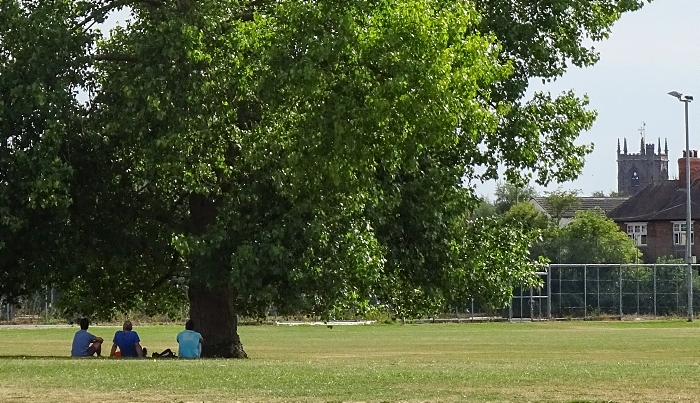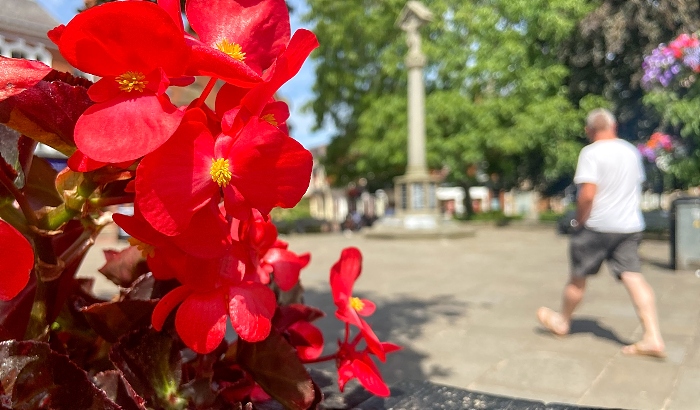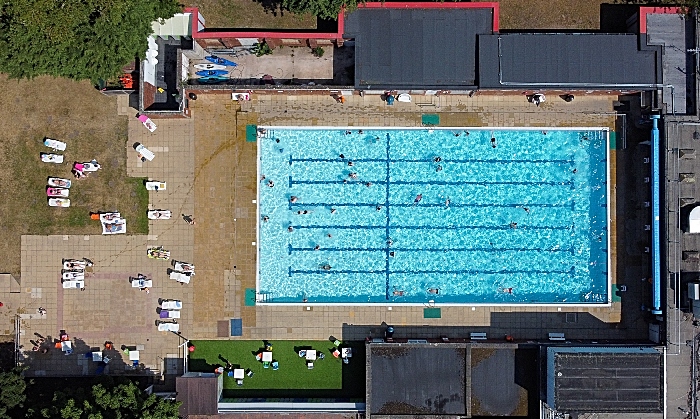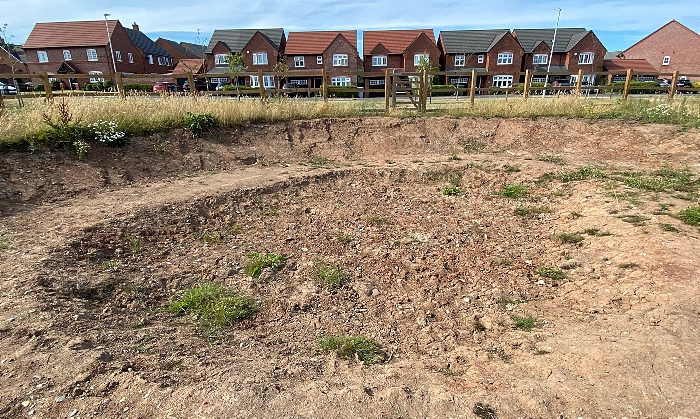
Nantwich recorded the highest temperature in England on Sunday with a scorching 31.2C.
And temperatures are expected to peak even higher in Cheshire today (Monday) and tomorrow at up to 37 or 38C, prompting warnings from health experts.
An amber warning for extreme heat began yesterday for England and parts of Wales as the UK braces for record temperatures.
Britain could be hotter than Delhi and the Sahara Desert today (Monday) with experts predicting the mercury could reach 41C in the south east, double the UK summer average.
Cheshire East Council has issued a warning for residents to take “sensible precautions” over the next 36-48 hours amid the Met Office’s first ever red ‘extreme heat’ warning for the region.
People are being urged to avoid the sun in the middle of the day, drink plenty of water and keep an eye out for vulnerable family and friends.

Dr Matt Tyrer, Cheshire East’s director of public health, said: “Most of us welcome warmer weather and a bit of summer sun – but the weather forecast for Monday and Tuesday will be far hotter than normal and poses real risks to people’s health and lives – and not just the more vulnerable.
“The main risks people face from a heatwave are: not drinking enough water, leading to dehydration; overheating – which can make symptoms worse for people who already have problems with their heart or breathing; and heat exhaustion or heatstroke, which can be very serious conditions.
“I would urge everyone to take sensible precautions and keep out of the sun during the hottest periods between 11am and 3pm, drink plenty of water and keep a watchful eye on those who may be more vulnerable, such as small children, the elderly, or those with underlying health conditions.”
The signs of heat exhaustion include:
● Headache
● Dizziness and confusion
● Loss of appetite and feeling sick
● Excessive sweating and pale, clammy skin
● Cramps in the arms, legs and stomach
● Fast breathing or fast pulse
● A high temperature of 38C or above
● Being very thirsty
If someone is showing signs of heat exhaustion, they need to be cooled down.
You should:
● Move them to a cool place
● Get them to lie down and raise their feet slightly
● Get them to drink plenty of water. Sports or rehydration drinks are OK
● Cool their skin – spray or sponge them with cool water and fan them. Cold packs around the armpits or neck are good, too.
Stay with them until they’re better. They should start to cool down and feel better within 30 minutes.
You should take extra care in the sun if you:
● Have pale, white or light brown skin
● Have freckles or red or fair hair
● Tend to burn rather than tan
● Have many moles
● Have skin problems relating to a medical condition
● Are only exposed to intense sun occasionally
● Have a family history of skin cancer

Tips for coping in hot weather:
● Keep out of the sun when the sun is strongest between 11am and 3pm
● Stay cool indoors, out of the heat, cool yourself down, keep environment cool or find somewhere that is cool
● If going outdoors, spend time or try to walk in the shade
● Liberally apply and frequently use sunscreen (at least sun protection factor 30) to all exposed skin
● If you plan to be out in the sun long enough to risk burning, sunscreen needs to be applied twice: 30 minutes before going out and just before going out
● Reapplications of sunscreen are also needed straight after you have been in water, towel drying, sweating or when it may have rubbed off
● Cover up with light-coloured, loose long clothing, a wide-brimmed hat and sunglasses
● Avoid exercising in the hottest parts of the day
● Make sure you take water with you, if you are travelling
● Drink plenty of fluids/cold drinks, especially when exercising
● Avoid excess alcohol
● Take cool baths or showers
● Close curtains on rooms facing sun to keep indoor spaces cooler
● Never leave anyone in a closed, parked vehicle, especially infants, young children or animals
● Get medical advice if you are suffering from a chronic medical condition or taking multiple medications.
Stay safe when swimming. Observe the following guidance:
● Always look for warning and guidance signs
● Only enter the water in areas with adequate supervision and rescue cover
● Water is colder than it looks. Cold water shock can happen when you suddenly enter cold water, like jumping or falling into a river
● Never enter the water after consuming alcohol
● Get out of the water as soon as you start to feel cold or unwell
● Always take someone with you when you go into or near water. If something goes wrong, they will be able to get help.
If someone is in difficulty in the water, shout reassurance to them, shout for help and call the emergency services (call 999 or 112).
Links to general heatwave advice
Heatwave: how to cope in hot weather – NHS (www.nhs.uk)
Beat the heat: staying safe in hot weather – GOV.UK (www.gov.uk)
Heatwave Plan for England: Protecting health and reducing harm from severe heat and heatwaves
NHS Heat exhaustion and heatstroke advice
(Images courtesy of Jonathan White)




















Acconding to the BBC, a high of 38.1C was recorded in Santon Downham, Suffolk,
No doubt partly due to the hot air emanating form Cheshire East council